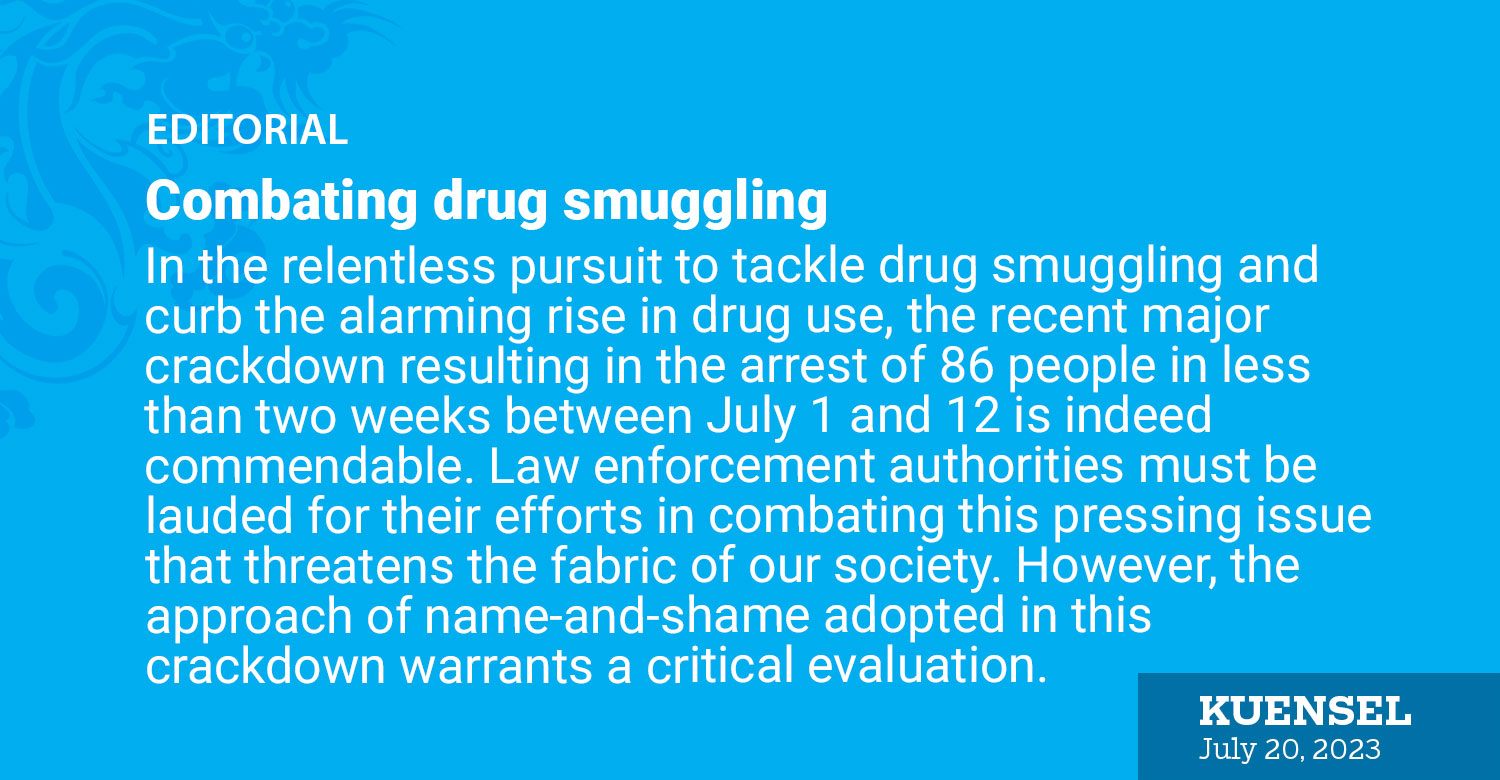In the relentless pursuit to tackle drug smuggling and curb the alarming rise in drug use, the recent major crackdown resulting in the arrest of 86 people in less than two weeks between July 1 and 12 is indeed commendable. Law enforcement authorities must be lauded for their efforts in combating this pressing issue that threatens the fabric of our society. However, the approach of name-and-shame adopted in this crackdown warrants a critical evaluation.
The notion of exposing individuals involved in drug smuggling through public naming and shaming may seem like a quick-fix solution to address the problem, but it risks overshadowing the root causes and have not yielded the desired long-term results. A more prudent and effective strategy lies in prioritising education and awareness, for it is through knowledge and understanding that we can forge a lasting impact on drug misuse.
Our society, known for its strong sense of community and compassion, must strive for a balance between law enforcement and empathy. While it is essential to hold wrongdoers accountable for their actions, stigmatising them publicly without addressing the factors that contribute to drug smuggling would be unjust. We should be wary of perpetuating a culture of shame that further marginalises those involved in the drug trade, potentially pushing them deeper into a cycle of criminality and desperation.
We must acknowledge that drug smuggling is a multi-faceted problem that requires a multi-dimensional approach. While the police play a pivotal role in apprehending offenders, it is equally vital to consider the social, economic, and psychological factors that drive people towards illegal activities. Understanding the underlying reasons for drug smuggling, such as poverty, lack of opportunities, and addiction, is fundamental to crafting effective solutions.
Education and awareness campaigns are powerful tools that can instigate change from within the community. By fostering a culture of knowledge, we can empower our citizens to make informed decisions, resisting the temptations of drug use and smuggling. These campaigns should extend beyond schools to reach every corner of our society, including families, workplaces, and religious institutions.
Drug education should be a continuous endeavour, evolving with the times and addressing the emergence of new substances and tactics used by smugglers.
We must also not overlook the importance of rehabilitation and support systems for individuals already ensnared by the clutches of addiction and criminality. Empathy and understanding are equally essential in helping them reclaim their lives and become contributing members of society once again.
The media’s role in shaping public opinion is undeniable, and it should be encouraged to focus on the larger picture, providing balanced reporting that not only highlights the challenges but also sheds light on potential solutions. Advocacy for comprehensive education and awareness campaigns, as well as support for rehabilitation initiatives, can influence public discourse, fostering empathy and understanding among citizens.
Bhutan has long been admired for its pursuit of Gross National Happiness, a holistic approach to well-being that encompasses not only economic prosperity but also spiritual, social, and environmental harmony. As we address the scourge of drug smuggling, we must remain true to these principles, ensuring that our actions align with our national ethos.
While the recent crackdown on drug smuggling is a step in the right direction, there is an urgent need to re-evaluate the name-and-shame approach. Education and awareness campaigns, coupled with comprehensive rehabilitation efforts, are the building blocks for a drug-free society.


